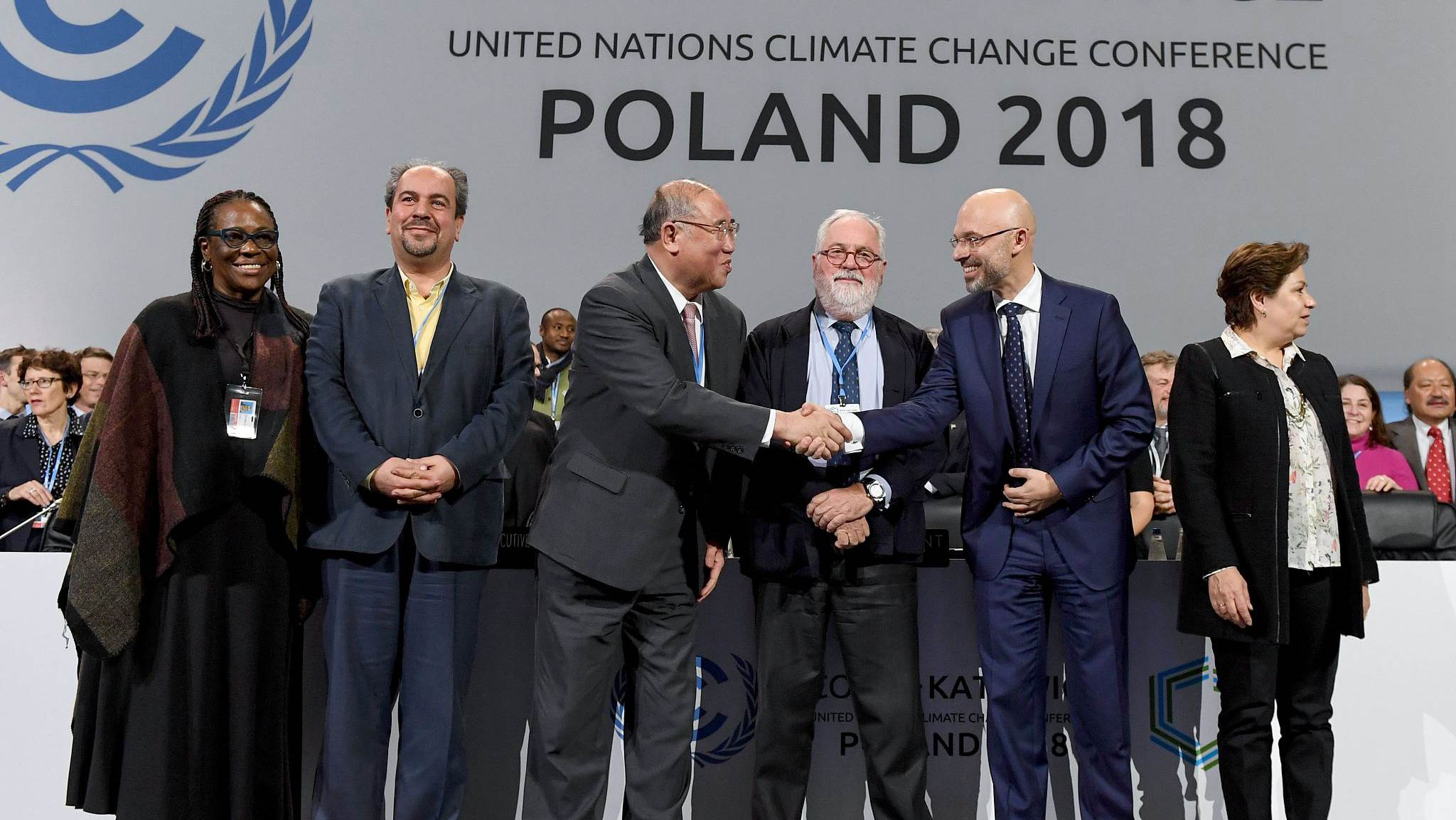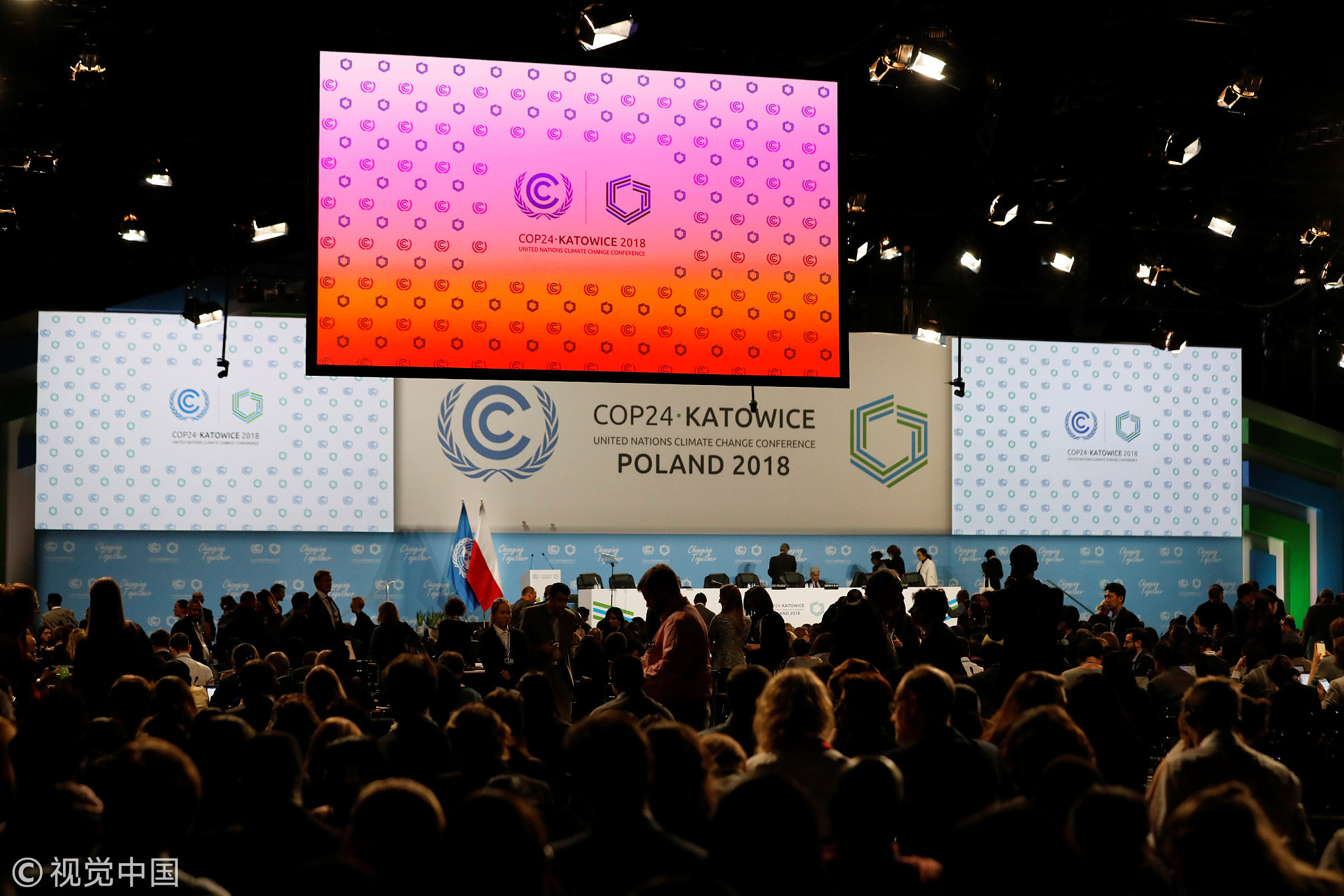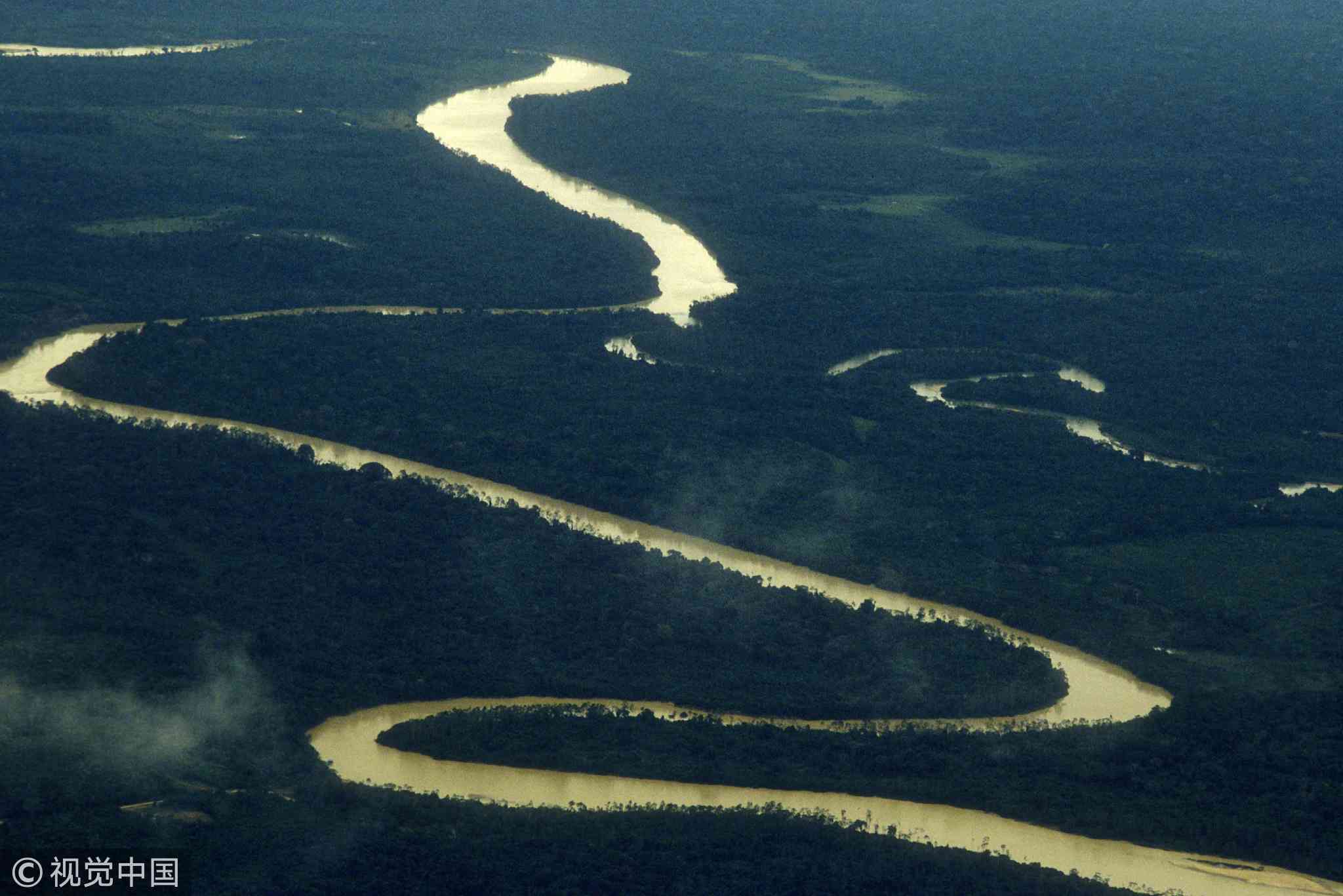
Opinions
14:03, 16-Dec-2018
Opinion: Katowice rulebook edges on implementation of Paris Agreement
Updated
13:29, 19-Dec-2018
Wu Changhua

Editor's Note: Wu Changhua is the Executive Director of Professional Association for China's Environment. The article reflects the author's views, and not necessarily those of CGTN.
Another long and agonizing UN negotiation on climate change was cheered as a success. After 15 days of hard work, negotiators from nearly 200 countries gathered in Katowice, Poland and managed to push through the rulebook to implement the Paris Agreement.
Global headlines are cheering the “secured important elements of the Paris rulebook” that will guide the implementation of the Paris Agreement. Parties agreed to a common transparency framework that ensures robust accounting and provides flexibility for countries to report their emissions.
The rules, known as a “transparency framework,” are key to the successful implementation of the Paris Agreement. They require countries to transparently, regularly and consistently report their greenhouse gases emissions and progress made towards meeting their nationally determined contributions (NDCs). The transparency framework also requires countries to be specific on resources, including financial resources, invested in climate change solutions.

Participants take part in plenary session during COP24 UN Climate Change Conference 2018 in Katowice, Poland, December 13, 2018 /VCG Photo
Participants take part in plenary session during COP24 UN Climate Change Conference 2018 in Katowice, Poland, December 13, 2018 /VCG Photo
This is important also because countries are expected to ratchet up their ambition in terms of emissions reductions in order to meet the 1.5 degrees Celsius goals. We all know that lack of transparency endangers the trust, confidence and cooperation required for parties to accelerate actions and solutions that match the urgency of the crisis.
And with transparency and clarity, countries are expected to compete proactively by investing more in technology, innovation, and solutions. Together, we can create a much larger pie that determines the future new economy that is built upon smart clean energy.
China played a significant role in reaching such an agreement by engaging the U.S. very “constructively” to preserve a single transparency framework and resist backsliding into bifurcation – developing versus developed nations. For a long time in the international climate change negotiation text, “common but differentiated responsibility” has been an important principle but also the one that divides the world in reaching agreement.
While COP24 is being applauded for its success, there remains a long way to go to meet the 1.5 degrees Celsius goal. The Katowice COP did not achieve much progress to have countries lift up their level of commitment to the target. Market mechanism, an important instrument to facilitate cooperation among countries to accelerate emissions reduction, has failed without consensus.
The long-expected clarity around the 100 billion U.S. dollars annually by 2020 committed by industrialized countries to developing countries has not been secured yet. The scientific foundation for the 1.5 degrees Celsius goal, as stated by the IPCC (Intergovernmental Panel on Climate Change) recent Special Report, was challenged by countries like the U.S., Russia, Saudi Arabia, and Kuwait.
Another hiccup is that Brazil with a small group of countries thwarted progress by insisting that they should be allowed to double-count their carbon credits. The risk lies in the fact that such a loophole would undermine the integrity of the carbon market and contradict the basic principle that each ton of emissions reductions should only be counted once. Some NGOs named such behavior as “cheating the atmosphere and their trading partners.”

Aerial view of Amazon rain forest, river curves and dense forest with high biodiversity, March 15, 2015, in Brazil /VCG Photo
Aerial view of Amazon rain forest, river curves and dense forest with high biodiversity, March 15, 2015, in Brazil /VCG Photo
To a certain extent, the world seems to be getting more divided in climate change actions. President Trump announced the U.S. withdrawal from Paris Agreement last year. The new Brazilian president decided to withdraw the country from hosting the next COP in 2019 by saying that he does not want to announce Brazil's withdrawal from the Paris Agreement while hosting COP25.
Very recently, the U.S. Environmental Protection Agency decided to give more room to coal-fired power plants, and Brazil is expected to relax its policy on agriculture by allowing more clearing of its forest for agricultural activities. Together they distract global attention to climate change and discourage ambitious actions and innovation to grapple with such a global challenge.
No matter how complicated it seems, I would still like to end this commentary piece with a positive note of hope. The U.S., even though it has politically blocked the Paris Agreement, has demonstrated its progress in energy efficiency and emissions reductions, largely due to actions at the state level. Brazil will be blamed and punished by the global community if the Amazon forests are damaged with its carbon sink capacity sacrificed.
China and India are expected to continue their leadership in clean energy revolution. And I am optimistic about today's technology capabilities. If incentives and governance are put in place, and if acceleration of actions becomes the shared common goal, humanity can win the battle on climate change.
This is for the sake of our current generation, and more importantly for a better future of our children and grandchildren.
(If you want to contribute and have specific expertise, contact us at opinions@cgtn.com.)

SITEMAP
Copyright © 2018 CGTN. Beijing ICP prepared NO.16065310-3
Copyright © 2018 CGTN. Beijing ICP prepared NO.16065310-3